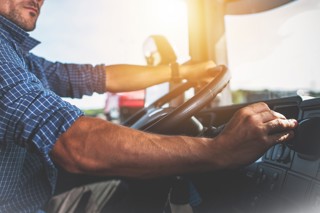The majority of HGV drivers do not consistently carry out checks, according to a new survey by CameraMatics.
The vehicle and fleet safety specialist surveyed more than 500 UK and Ireland-based drivers, asking how often they carry out daily walkaround checks.
It revealed that two in five HGV drivers (39.3%) said they never do walkaround checks, with a further 15.8% saying they rarely complete checks. That equates to more than half (55.1%) of respondents not carrying out regular walkaround checks.
Just under a third (29.4%) of drivers told CameraMatics they always complete checks, with 15.5% saying they ‘usually do them’.
Walkaround checks should be a part of every driver’s pre-journey routine, says CameraMatics. The best way of ensuring this is for operators to have processes in place for checks to happen and be recorded.
CameraMatics founder and director, Simon Murray, said: “It’s concerning to hear that over 50% of drivers say they do not carry out regular walkaround checks.”
Checks are important for a whole range of reasons. Completing them means drivers and fleet operators are constantly aware of the state of their vehicle.
The DVSA reported in January 2020 that 85% of lorry defects can be picked up during a walkaround check.
Drivers can receive an unlimited fine and even a prison sentence for using an HGV in a dangerous condition and, in the event of an accident, evidence of adequate walkaround vehicle checks will be sought.
Lack of evidence could lead to insurance issues in the event of a claim or pay-out. In these circumstances, both the driver and the operator can be liable.
CameraMatics also surveyed over 250 HGV fleet managers about vehicle checking systems, with more than 50% of respondents using a pen and paper system for checks.
Murray says that using an app for walkaround checks “significantly improves” safety and compliance.
He explained: “It allows fleets to ditch unreliable and inefficient pen and paper systems. As well as giving managers an instant notification of check completion and results there’s also a time and location-stamped record of every check. This can be crucial in the event of enforcement or insurance issues.”





















Login to comment
Comments
No comments have been made yet.